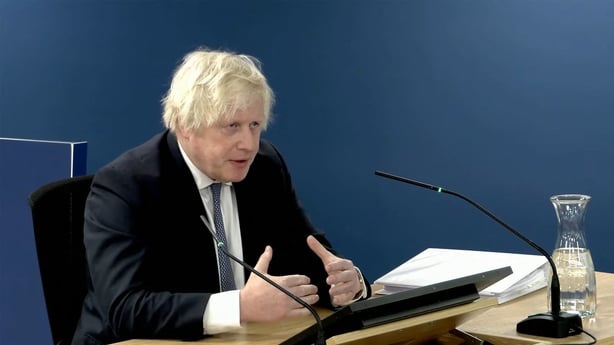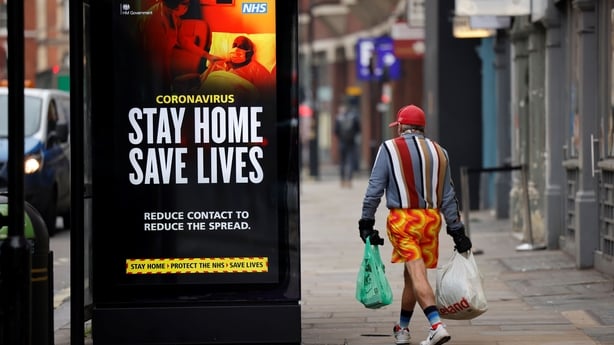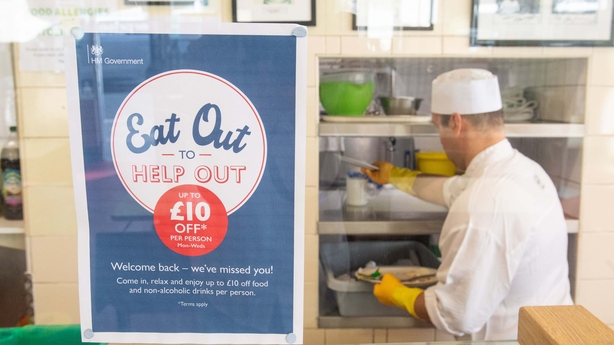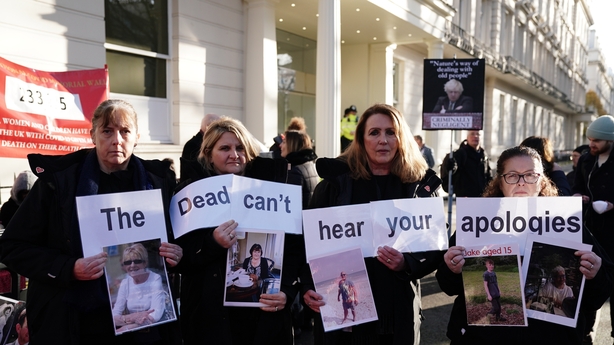There are obviously some things that still rankle Boris Johnson about how his handling of the Covid-19 pandemic is viewed.
Mr Johnson had a year to prepare for his appearance before the Covid Inquiry and he was reported to have spent much of the time doing just that. His personal statement ran to 200 pages.
He has been dogged by the Covid controversy for three years and has the experience of testifying before the privileges committee hearings.
His demeanour at the Covid Inquiry was considered more measured and less "bullish" than his testimony before the privileges' committee.
But he was willing to argue his point and he became strident at times with his interrogator, Hugo Keith KC for the inquiry.
After the 'Partygate' report by Sue Gray and the finding by the privileges' committee that he misled the House of Commons about the No 10 lockdown parties, he wanted to put the record straight as he saw it.
Although the Covid Inquiry will not be apportioning blame, Mr Johnson is known to care about his legacy, quite apart from any remaining hope of a political comeback.

The former prime minister portrayed himself as caught between "cruel" and "appalling" choices and having to balance the harms of lockdowns with the risk of contagion.
He apologised for the pain and suffering of the Covid pandemic and said he accepted responsibility as prime minister for mistakes that were made.
Mr Johnson was prepared to say that he had not "twigged" the seriousness of the Covid threat in early 2020.
But he was able to point out that neither had the "entire Whitehall establishment, scientific community included".
This, he said, was because previous outbreaks like SARS and MERS had not had a serious effect in Britain.
However, Mr Johnson dug his heels in on the overall fatality rate of Covid in the UK and would not accept that the country had fared badly compared to other countries.
Mr Keith put statistics to him that only Italy had a worse fatality rate among western European countries.
Mr Johnson retorted by saying that a study by the scientific journal The Lancet had the UK at mid table in Europe.
And anyway, he said, the higher average age and higher density of the UK's population was responsible for the relatively high death rate. By implication, the death rate was not the result of government policy.
Pete Weatherby KC, representing the COVID-19 Bereaved Families for Justice, later followed up on the death rate issue and pointed out that the Worldometer website has the UK at number 18 out of 231 countries for excess deaths.
Mr Johnson said he did not think Mr Weatherby's evidence stacked up.
(Worldometer has the Irish death rate at 1,866 per million compared to 3,389 for the UK).

One thing that got Mr Johnson going was the issue of lockdown parties. On the one hand, he confirmed he was "furious and sickened" at what had occurred in No 10 and apologised again.
However, he denounced the way the gatherings had been portrayed in the media and on a TV dramatisation as a "travesty".
And what really got him going was the suggestion that he did not care about the suffering cause by Covid.
"I did care, and I continue to care passionately about it," he said, and described his experience of being in intensive care with the illness. At that point, he seemed to be overcome with emotion and paused briefly.
He also dismissed as "rubbish" the suggestion that he was against imposing more restrictions in June 2020 because it only affected older people who were going to die anyway.
Notes of meetings in June 2020 recorded him talking about "letting the virus rip".
He was also recorded as saying that there may be more casualties, but older people had had a good innings and should accept their fate.
But Mr Johnson said he was challenging the scientific consensus and putting points to the scientists as a layman that people wanted answers to.
He claimed he had been "agnostic" at the start of the debate on how to react to the virus.
There had been warnings that the public would develop "behavioral fatigue" and stop obeying restrictions if they were imposed too early.
And there were warnings about an upsurge in infection spread or bounce back once restrictions were lifted.
Later he became more decided. During a discussion that August about how to get people to isolate he wrote "the OVERRIDING MESSAGE .... should be about tougher enforcement and BIGGER FINES".
He said while the then Health Secretary Matt Hancock had been pushing for the virus to be taken more seriously, he had the then Chancellor of the Exchequer Rishi Sunak warning of economic damage from restrictions.
"I've got the Chancellor of the Exchequer with me saying that there's a risk to the UK bond markets and our ability to raise sovereign debt," he said.
The government's 'Eat Out to Help Out' scheme provided vouchers to people to go to restaurants and bars after lockdown was eased but while restrictions were still in place.

Other medical witnesses have said this caused deaths, but the inquiry heard this week that apart from increases in some parts of the country there was no evidence that the plan had caused a significant upsurge in transmission.
However, it turned out the plan had not been discussed with medical experts. Mr Johnson said he assumed it had been.
He said that when Chief Medical Officer Chris Whitty sarcastically referred to it as 'Eat Out to Help The Virus' it came as a surprise to him.
Mr Johnson said he was "perplexed" as to how it was "smuggled through" without being discussed at any of the Covid meetings.
That will be a question to be put to Mr Sunak himself when he appears next Monday.
It was also noticeable what rankled with the relatives of victims.

On a number of occasions, the chair of the inquiry Heather Hallet had to warn members of the public to stop interrupting proceedings.
This happened at the start when Mr Johnson made his apology. It happened again later when he tried to argue that Britain had not fared that badly from Covid relative to other countries.
Ms Hallett also interjected with her own observation during the evidence about No 10 lockdown parties.
She said she had received a number of messages from bereaved people as she travelled around the United Kingdom who suffered horrific grief during lockdown.
"I'm afraid Partygate, as it's been called, exacerbated it," she told Mr Johnson.
Mr Johnson apologised again for what happened, but repeated his belief that the gatherings were within the rules.
It is clear that there are many people who will not be won over to Mr Johnson's version of the pandemic.







